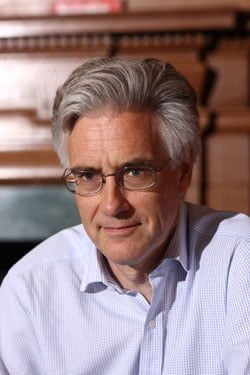Lord Adair Turner is head of the UK’s Financial
Services Authority, the body in charge of regulating the banks and other
financial institutions. As a member of
the ‘great and good’ of the British ruling class, he went to Cambridge and got a double first-class
degree. He then worked his way
successively through oil giant BP, management consultants McKinsey, Chase
Manhattan Bank and then to the head of the bosses’ organisation, the
Confederation of British Industry (CBI), before becoming a director of (the now
taken-over) mega investment bank, Merrill Lynch.
So Turner knows a thing or two about
the global financial sector and the workings of the banking industry. He certainly partook of the grotesque
mega-bonuses that bankers and financiers ‘earned’ during the Great Credit Boom
of 2002-07.
Some weeks ago, he was interviewed
by Prospect magazine, a small mouthpiece of the Blairite wing of New Labour. In that interview, Lord Turner blurted out a
telling truth about finance capital that its proponents did not want to
hear. He said that “many financial
activities which had proliferated over the last ten years were ‘socially
useless.’” In this, he was ironically
echoing the words of Stephen Green, the Chairman of the British Bankers
Association, who had said more or less the same thing, that “in recent years,
banks have pursued short-term profit by introducing complex products of no real
use to humanity!”
The reaction to these comments from
financiers has been apoplectic. As one guest
at the Lord Mayor’s Banquet remarked, when Turner reiterated his comments to
the massed ranks of the City of London,
“probably 60% of the people in this room would willingly shoot Turner over that
speech.” One City leader commented on
the Prospect interview that he was “appalled, disgusted, ashamed and hugely
embarrassed that I should have lived to see someone who commands a senior and
important position as head of the UK regulatory regime making such
damaging and damning remarks.”
Lord Turner defended his position by
pointing out that financial services do not deliver anything that people can
consume, they are just lubricants of a capitalist economy – the plumbing of a
house if you like. In that sense, they add
no value. But if the plumbing goes wrong,
it is potentially explosive in its impact.
He then went further in his populist
attack on his own industry. He said the
current credit crisis was “cooked up in trading rooms, where not just a few,
but many people earned annual bonuses equal to a lifetime’s earnings of some of
those now suffering the consequences.”
Lord Turner said that “this was the
worst crisis in 70 years – indeed it could have been the worst in the history
of market capitalism. Real disaster –
new Great Depression – was only averted by quite exceptional policy
measures. Even so, major economic harm
has occurred. Hundreds of thousands of
British people are newly unemployed; tens of thousands have lost their houses
to repossession; and British citizens will be burdened for many years with
either higher taxes or cuts in public services because of an economic crisis.”
He concluded: “We cannot go back to
business as usual and accept the risk that a similar crisis occurs again in 10
or 20 years time. We need radical
change.”
Hold your horses! What did Turner mean? Is he advocating the end of the capitalist
system or at least the full and democratic public ownership of the banks? No, the bankers could breathe a little. That was not what ex-banker Turner had in
mind.
He wants to increase the amounts of
back-up capital that banks must have before they can lend or invest (although
he did not say by how much); he wants banks to issue only ‘socially useful’
products (whatever they might be); and he wants bonuses to be controlled. So his radical change is no ‘Turner’ at
all.
 The irony is that many of the
The irony is that many of the
bankers’ weird and exotic financial instruments that went wrong in the great
credit crisis were regarded as very socially useful because they supposedly ‘reduced
risk’ or ‘hedged risk.’ Bonuses, from
which Turner himself benefited at Merrill Lynch, were designed to ensure better
performance – and who is to say otherwise?
As for bank capital, the best way to ensure that banks do the right
things with our money is for us to own them outright and make them accountable
to society.
Lord Turner, of course, does not
reject capitalism. He told the City
bankers that “Adam Smith’s insight that good economic results can flow from the
private pursuit of profit remains valid and vital.” But he cannot help blurting out that
capitalism is inherently unstable: “it involves rejecting an intellectually
elegant, but also profoundly mistaken faith in ever perfect and
self-equilibrating markets, ever rational human behaviours.”
So there it is. Capitalism is a system
for profit, but it does not work because it is not planned and it is not
rational. Indeed, it is positively
damaging to the majority of people. But
there is no alternative they say, so let’s see if we can just regulate it
better. Some hope!






